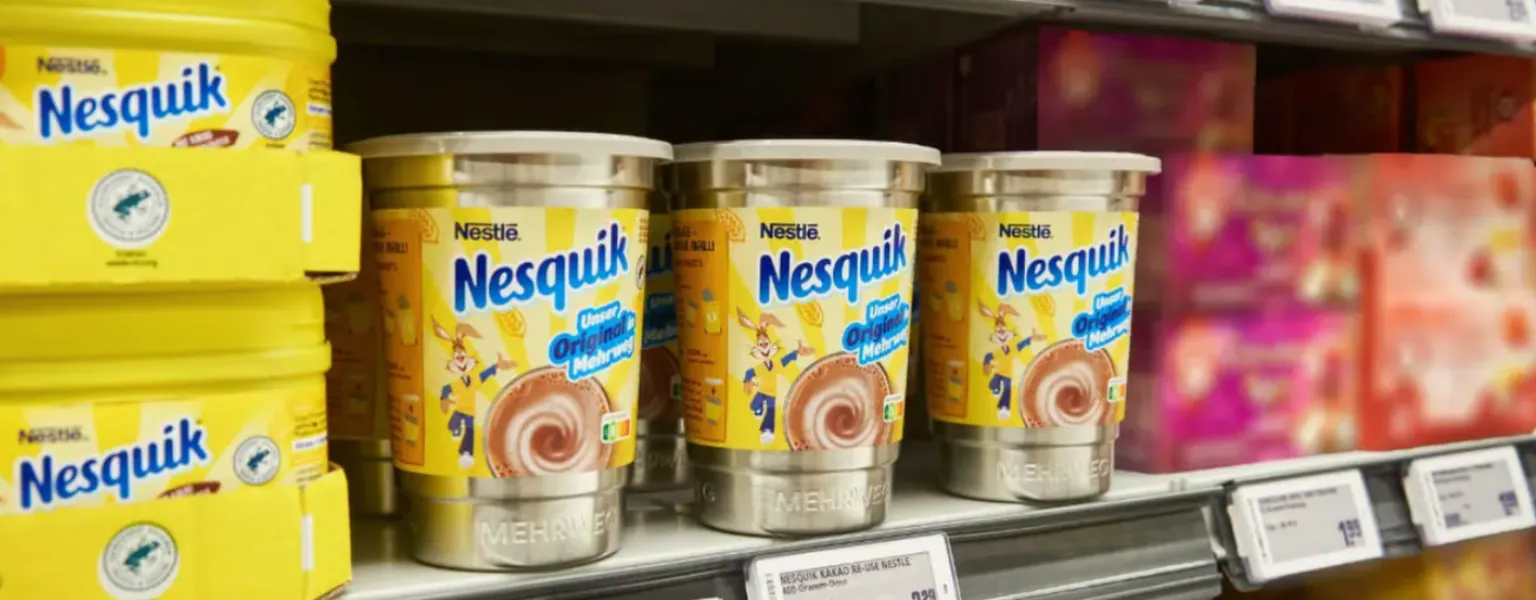Ellen MacArthur Foundation calls for reuse revolution

Sustainability
In a recent announcement from the Ellen MacArthur Foundation, a call for a transformative shift towards reusable packaging is highlighted under the title "Scaling Returnable Packaging: Propelling a Reuse Revolution to Address the Plastics Pollution Crisis."
The Foundation's latest study underscores the substantial environmental advantages offered by returnable packaging, emphasising that, when implemented on a larger scale with the appropriate strategies, it can economically compete with single-use alternatives for specific products.
The focal point of the study, titled 'Scaling Returnable Packaging,' is on returnable packaging, a system where products are purchased, returned by consumers, professionally cleaned, refilled, and then resold. The study accentuates the advantages of adopting reusable plastic packaging for beverage, food cupboard, personal care, and fresh food items, especially when designed collaboratively across the industry and operated on a grand scale. In the most optimistic scenario, returnable plastic packaging has the potential to reduce greenhouse gas emissions and water usage by 35% to 70% compared to single-use plastics.
This comprehensive research was conducted in partnership with Systemiq and Eunomia, with contributions from over 60 organisations, including the European Investment Bank, national governments, reuse experts, and major brands and retailers such as Danone, Nestlé, PepsiCo, The Coca-Cola Company, and Unilever.
The Ellen MacArthur Foundation's 'Global Commitment Five Years In' paper, released recently, indicates that without a significant transition towards reuse, global virgin plastic use in packaging is unlikely to decrease before 2050. The paper identifies the scaling of reuse as a crucial obstacle to overcome in the battle against plastic waste and pollution.

To catalyse global change, the Foundation urges leaders in the private, public, and finance sectors to adopt a fresh perspective and actively contribute to expanding the reuse revolution through shared infrastructure, packaging standardisation, and collaborative efforts to achieve high return rates.
The study envisions a positive outcome by showcasing the possibilities if reuse models transition from pilot phases to mainstream adoption, packaging design and standards are harmonised, and collection and sorting infrastructure are shared. This, the Foundation believes, will not only make the economics feasible but also unlock substantial environmental benefits. The call is clear—it's time for a reuse revolution.
Related News
-
Sustainability
Reconomy calls for ‘laser focus’ on circularity ahead of COP 28
-
Sustainability
UK: Nestlé's £7M investment tackles hard-to-recycle plastics
-
Sustainability
Mixed feelings: European consumers embrace reusable packaging but hygiene concerns linger
-
Sustainability
Uber Eats trials reusable takeaway packaging in London
-
Sustainability
Nestlé trials reusable steel containers for Nesquick in Germany




